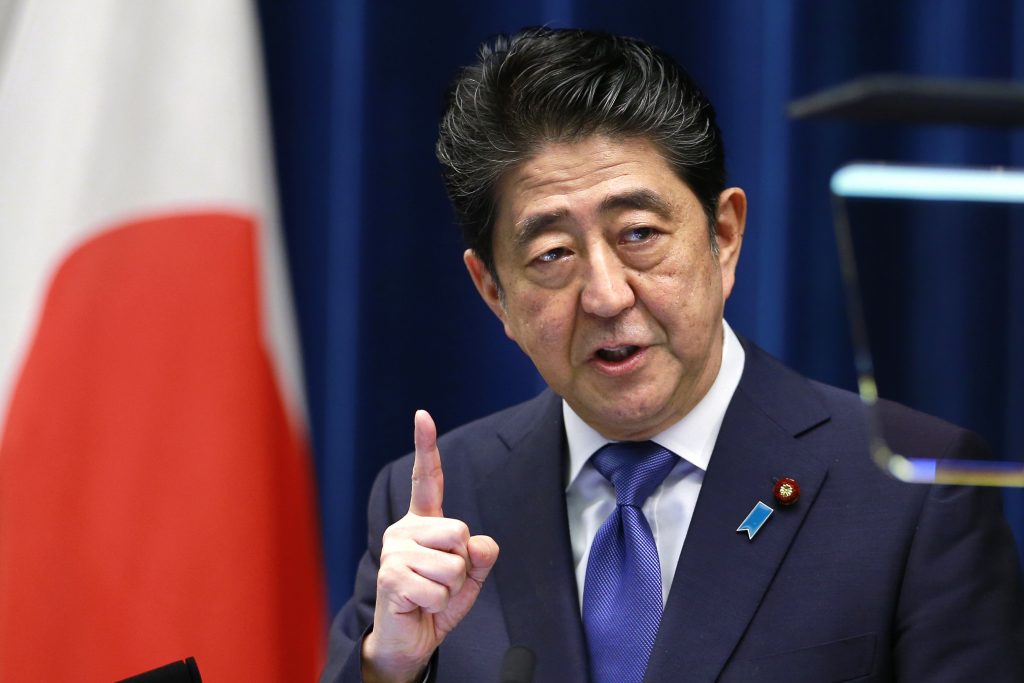
- ARAB NEWS
- 18 Aug 2025

The Japanese government’s plan to hold a state funeral for former Prime Minister Shinzo Abe has met mixed reactions from the country’s political parties and the general public.
There has been only one state funeral in Japan’s post-World War II history, underlining the magnitude of the plan announced by Prime Minister Fumio Kishida on Thursday.
Abe was the country’s longest-serving prime minister but also a controversial one, having pressed ahead with nation-dividing policies including the lifting of the country’s self-imposed ban on the exercise of its right to collective self-defense. He was also criticized in terms of accountability to the public.
As reasons for holding the state funeral, Kishida said at a press conference on Thursday that Abe’s achievements are “truly outstanding” and that he has received “extremely high praise from the international community, including foreign leaders.”
Many in the ruling Liberal Democratic Party have welcomed the state funeral plan. Yasutoshi Nishimura, who heads the secretariat of an LDP faction that was led by Abe, told reporters, “I’ll be happy with the cabinet’s decision (on the state funeral), as it means the whole country will recognize (Abe’s) achievements.”
As Abe was supported by conservatives, there have been calls from among them for holding a state funeral for the former prime minister, who died in a shocking shooting attack last week.
“I’m glad the prime minister made the decision,” a conservative cabinet minister said.
A senior LDP official said that by holding a state funeral for Abe, Kishida apparently aims to secure support from the conservative base.
Meanwhile, another party source expressed concern that Abe may be divinized. “I hope that no politician would take advantage (of his divinization),” the source added.
There are pro and con arguments online about Abe’s state funeral, partly because of a series of scandals during his administration, including the tampering of documents at the Finance Ministry.
Political parties other than the LDP are also raising questions about the planned state funeral.
“It is not something that can be decided so easily,” a source at the main opposition Constitutional Democratic Party of Japan said. “It may lead to the glorification of Abe.”
“Criticisms (of Abe) that did not surface immediately after his death may become apparent in the future,” a senior CDP official said.
CDP leader Kenta Izumi has issued a statement on the matter, though refraining from clarifying his position. “A state funeral is a solemn occasion, so I will observe it quietly while offering prayers,” he said.
Kazuo Shii, chief of the Japanese Communist Party, said in a statement Friday expressing the party’s opposition to the state funeral.
Holding the event “would be a full national endorsement and praise of Mr. Abe’s political positions and stances, towards which the public has divided views,” Shii claimed.
Even the LDP’s coalition partner, Komeito, appears to be not necessarily positive about the state funeral plan. “We don’t want to do it as there are criticisms of Mr. Abe,” a Komeito official said, adding, “There might not be a mood for a quiet farewell.”
Komeito leader Natsuo Yamaguchi and other senior party officials have released no statements on the issue.
One LDP official said holding the state funeral must be supported by at least 70 pct of the public. “The government should give a full explanation (about the funeral plan) to the Diet,” Japan’s parliament, the official said.
Kishida initially hesitated to decide to hold a state funeral, with some in the LDP arguing that Abe’s accomplishments should not be tarnished by controversy over whether to hold a state funeral, according to informed sources.
But Kishida was persuaded to push forward with the hosting of a state funeral after he received a phone call from an LDP lawmaker on Tuesday, the day of Abe’s family funeral. Kishida then told his aides of his decision on Wednesday, the day before he made the announcement.
Chief Cabinet Secretary Hirokazu Matsuno told a press conference on Friday that the government will consult the bereaved family and others about the date, location and scale of the planned state funeral.
“The forms of the funerals of former prime ministers have been determined comprehensively on a case-by-case basis based on public sentiment and the feelings of their bereaved families, as well as other circumstances,” the top government spokesman noted.
JIJI Press